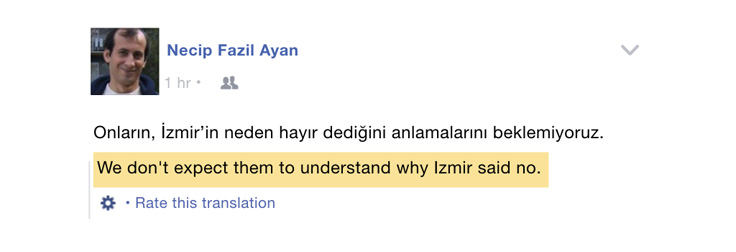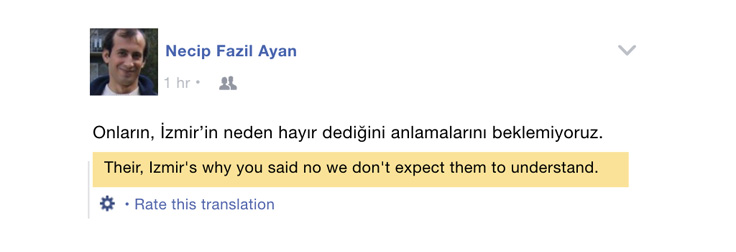
Have you ever tried translating something on Facebook, only to get a garbled up response in English that still doesn’t make much sense? Well, the company is making an active effort to improve this by having its translations powered completely by artificial intelligence. According to Facebook, a substantial change has been made to its networks which will help improve the 2,000 or so translation directions and 4.5 billion translations that are made on the platform each day.
Previously, translations were handled by a phrase-based system that broke down sentences into individual words. While this made it easier for this technology to process them, it also meant that words were only considered one at a time, meaning the whole sentence’s context may not be taken into account.
Now, however, Facebook says it is using a type of recurrent neural network known as sequence-to-sequence LSTM (long short-term memory), which understands the context behind the entire sentence and translates accordingly.
To demonstrate this point, Facebook showed the Turkish-to-English translation of a sentence written by Turkish Necip Fazil Ayan, one of the company’s software engineers. The first image shows the results from the old phrase-based translation system:
The following image, however, is the result of the newer neural network:
 Facebook says this was achieved thanks to the artificial intelligence being able to effectively react to different variables. For instance, when handling unknown words, the neural network will now use an integrated bilingual lexicon to find the most accurate translation. An example of this can be seen in an English-to-Spanish translation; with the new network, the short-form term “tmrw” (tomorrow) can correctly be changed to mañana. As well, recurring words in a sentence will be identified and grouped together to be translated more quickly and efficiently in a process known as “vocabulary reduction.”
Facebook says this was achieved thanks to the artificial intelligence being able to effectively react to different variables. For instance, when handling unknown words, the neural network will now use an integrated bilingual lexicon to find the most accurate translation. An example of this can be seen in an English-to-Spanish translation; with the new network, the short-form term “tmrw” (tomorrow) can correctly be changed to mañana. As well, recurring words in a sentence will be identified and grouped together to be translated more quickly and efficiently in a process known as “vocabulary reduction.”
“Completing the transition from phrase-based to neural machine translation is a milestone on our path to providing Facebook experiences to everyone in their preferred language,” Facebook said in a statement. “We will continue to push the boundaries of neural machine translation technology, with the aim of providing humanlike translations to everyone on Facebook.”



